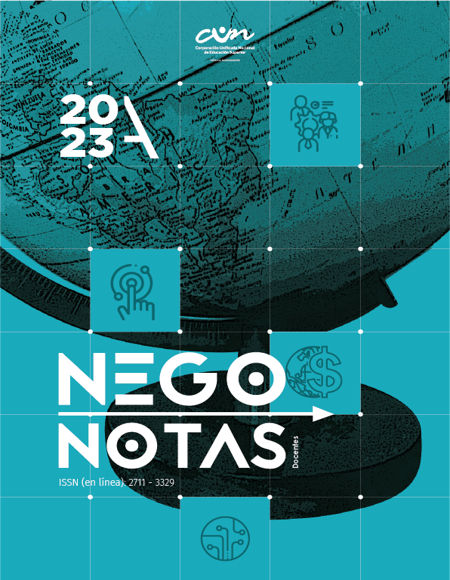The role of audiovisual content in the promotion of tourist destinations
El papel de los contenidos audiovisuales en la promoción de destinos turísticos
Main Article Content
Abstract
Currently, advances in science and technology contribute favorably to the promotion of different places, all due to the global reach of social networks. Therefore, this article had the objective of highlighting the role of the generation of multimedia content in the promotion of tourist destinations from a participatory approach, where it was the impacted population that became the promoter of the destination itself. For this, a qualitative study was carried out where the integration of the scenario and the people as part of the same whole was sought. This exercise demonstrates the design and implementation of these contents, the participating role of the community, the work plan proposed in the territory and the impact methodology according to the characteristics of the designed contents, making visible the potential of the municipality of San Antonio in the department of Tolima. In turn, it contributes a call to reflection on the responsibility in the creation of content that is truly allusive to the reality of a potential tourist destination, and the importance of the community itself being the protagonist of what the territory has to offer.
Downloads
Article Details
References (SEE)
Brida, G., Rodríguez, M., y Mejía, M. (2021). La contribución del turismo al crecimiento económico de la ciudad de Medellín–Colombia. Revista de economía del Rosario, 24(1), 1-23. https://doi.org/10.12804/revistas.urosario.edu.co/economia/a.8926
Burgos, M., Manso, J., y Ezquerra, Á. (2023). Análisis de los contenidos audiovisuales de ciencias creados por docentes en formación inicial. Revista Interuniversitaria de Formación del Profesorado. Continuación de la antigua Revista de Escuelas Normales, 98(37.1). https://doi.org/10.47553/rifop.v98i37.1.94183
Cadena, P., Rendón, R., Aguilar, J., Salinas, E., de la Cruz, F., y Sangerman, D. M. (2017). Métodos cuantitativos, métodos cualitativos o su combinación en la investigación: un acercamiento en las ciencias sociales. Revista mexicana de ciencias agrícolas, 8(7), 1603-1617. https://www.scielo.org.mx/pdf/remexca/v8n7/2007-0934-remexca-8-07-1603-en.pdf
Camacho, D., Panizo, A., Bello, G., Gonzalez, A., y Cambria, E. (2020). The four dimensions of social network analysis: An overview of research methods, applications, and software tools. Information Fusion, 63, 88-120. https://doi.org/10.1016/j.inffus.2020.05.009
Can, U., y Alatas, B. (2019). A new direction in social network analysis: Online social network analysis problems and applications. Physica A: Statistical Mechanics and its Applications, 535, 122372. https://doi.org/10.1016/j.physa.2019.122372
Cardeño, N., Cardeño, E., y Bonilla, E. (2023). TIC y transformación académica en las universidades. Región Científica, 2(2), 202370. https://doi.org/10.58763/rc202370
Figuereo, J., González, F., y Machin, J. (2021). Instagram como objeto de estudio en investigaciones recientes. Una revisión de literatura con enfoque en revistas científicas. Ámbitos. Revista Internacional De Comunicación, 53, 9-23. https://doi.org/10.12795/Ambitos.2021.i53.01
Gatto, A. (2020). A pluralistic approach to economic and business sustainability: A critical meta‐synthesis of foundations, metrics, and evidence of human and local development. Corporate Social Responsibility and Environmental Management, 27(4), 1525-1539. https://doi.org/10.1002/csr.1912
Gómez, C., Sánchez, V., y Tovar, G. (2022). Evaluación del nivel de madurez de la corporación Corcaraño para la gestión de proyectos turísticos en el departamento del Caquetá (Colombia). Clío América, 16(32), 833–843. https://doi.org/10.21676/23897848.4994
González, D., Garzón, D., y Sánchez, V. (2023). Cierre de las empresas del sector turismo en el municipio de Leticia: una caracterización de los factores implicados. Región Científica, 2(1), 202342. https://doi.org/10.58763/rc202342
González, S., Pellicer, J., y Terra, M. (2022). Orientales: una experiencia pedagógica de producción televisiva. InterCambios. Dilemas y transiciones de la Educación Superior, 9(1). https://ojs.intercambios.cse.udelar.edu.uy/index.php/ic/article/view/309
Guaita, I., Marques, I., Gallego, A., y Segura, B. (2019). Analyzing territory for the sustainable development of solar photovoltaic power using GIS databases. Environmental monitoring and assessment, 191, 1-17. https://doi.org/10.1007/s10661-019-7871-8
Guo, Y., Lu, Z., Kuang, H., y Wang, C. (2020). Information avoidance behavior on social network sites: Information irrelevance, overload, and the moderating role of time pressure. International Journal of Information Management, 52, 102067. https://doi.org/10.1016/j.ijinfomgt.2020.102067
Higgins, F., Chew, B., y Doering, A. (2022). Socialising tourism after COVID-19: reclaiming tourism as a social force? Journal of Tourism Futures, 8(2), 208-219. https://doi.org/10.1108/JTF-03-2021-0058
Kanwal, S., Rasheed, M., Pitafi, A., Pitafi, A., y Ren, M. (2020). Road and transport infrastructure development and community support for tourism: The role of perceived benefits, and community satisfaction. Tourism Management, 77, 104014. https://doi.org/10.1016/j.tourman.2019.104014
Ledesma, F. y Malave, B. (2022). Patrones de comunicación científica sobre E-commerce: un estudio bibliométrico en la base de datos Scopus. Región Científica, 1(1), 202213. https://doi.org/10.58763/rc202214
Lu, J., Xiao, X., Xu, Z., Wang, C., Zhang, M., y Zhou, Y. (2022). The potential of virtual tourism in the recovery of tourism industry during the COVID-19 pandemic. Current Issues in Tourism, 25(3), 441-457. https://doi.org/10.1080/13683500.2021.1959526
Marin, L. (2022). How to do things with information online. A conceptual framework for evaluating social networking platforms as epistemic environments. Philosophy & Technology, 35(3), 77. https://doi.org/10.1007/s13347-022-00569-5
Millán, E., Sánchez, V., y Gómez, C. (2020). Ecoturismo implementado en el mundo globalizado como alternativa de desarrollo económico y social. Clío América, 14(27), 380-389. http://dx.doi.org/10.21676/23897848.3433
Moreno, P., Roman, A., y Flores, J.. (2021). Evolución del informativo audiovisual en opinión de sus creadores: de la televisión a la carta al vodcasting. Revista de Comunicación, 20(2), 303-318. http://dx.doi.org/10.26441/rc20.2-2021-a16
Navarro, F., Almaguer, R., Moreno, F., y Hernández, N. (2020). Estrategias comunicacionales en el sector turismo. Revista de ciencias sociales, 26(1), 77-90. https://www.redalyc.org/journal/280/28063104009/html/
Nieto, J., Marine, E., Ferrer, B., y Martin, E. (2023). La imagen turística de Barcelona en la ficción audiovisual. Catalanidad, cosmopolitismo y mediterraneidad versus españolada. Revista Latinoamericana de Estudios Urbanos Regionales, 49(146), 1-23. http://dx.doi.org/10.7764/eure.49.146.12
Noa, D., y Gascón, D. (2019). Los productos agro-turísticos como una iniciativa de desarrollo local en cuba. Universidad & Ciencia, 8(3), 197-206. https://revistas.unica.cu/index.php/uciencia/article/view/1358
Nordberg, K., Mariussen, Å., y Virkkala, S. (2020). Community-driven social innovation and quadruple helix coordination in rural development. Case study on LEADER group Aktion Österbotten. Journal of Rural Studies, 79, 157-168. https://doi.org/10.1016/j.jrurstud.2020.08.001
Osácar, E., Fraiz, J., y Araújo, N. (2022). Imágenes turísticas de las ciudades españolas a partir de la ficción audiovisual. Boletín de la Asociación de Geógrafos Españoles, 95. https://doi.org/10.21138/bage.3314
Orozco, E. (2022). Experiencias en torno al emprendimiento femenino. Región Científica, 1(1), 20227. https://doi.org/10.58763/rc20225
Pan, X., Rasouli, S., y Timmermans, H. (2021). Investigating tourist destination choice: Effect of destination image from social network members. Tourism Management, 83, 104217. https://doi.org/10.1016/j.tourman.2020.104217
Pasanchay, K., y Schott, C. (2021). Community-based tourism homestays' capacity to advance the Sustainable Development Goals: A holistic sustainable livelihood perspective. Tourism Management Perspectives, 37, 100784. https://doi.org/10.1016/j.tmp.2020.100784
Pérez, A., Rodríguez, E., y Camejo, Y. (2023). Fundamentos de la atención psicopedagógica para la configuración del proyecto de vida en estudiantes universitarios. Educación Y Sociedad, 21(2), 67–89. https://doi.org/10.5281/zenodo.7979972
Pérez, I. (2017). Creación de Recursos Educativos Digitales: Reflexiones sobre innovación educativa con TIC. Revista Internacional de sociología de la educación, 6(2), 243-268. http://www.redalyc.org/articulo.oa?id=317151451004
Polyzos, S., Samitas, A., y Spyridou, A. (2021). Tourism demand and the COVID-19 pandemic: An LSTM approach. Tourism Recreation Research, 46(2), 175-187. https://doi.org/10.1080/02508281.2020.1777053
Puška, A., Pamucar, D., Stojanović, I., Cavallaro, F., Kaklauskas, A., y Mardani, A. (2021). Examination of the sustainable rural tourism potential of the brčko district of bosnia and herzegovina using a fuzzy approach based on group decision making. Sustainability, 13(2), 583. https://doi.org/10.3390/su13020583
Ramírez, J., Rodríguez E., y Zamora, J. (2023). Estrategias recreativas para suplir las carencias de niños y jóvenes en situaciones de la Covid-19 en el municipio Morón (Cuba). Región Científica, 2(1), 202328. https://doi.org/10.58763/rc202328
Ranjan, S., y Gupta, B. (2021). Multiple features based approach for automatic fake news detection on social networks using deep learning. Applied Soft Computing, 100, 106983. https://doi.org/10.1016/j.asoc.2020.106983
Rodrigues, D., y Sánchez, J. (2022). The assessment of the tourism potential of the Tagus international nature reserve landscapes using methods based on the opinion of the demand. Land, 11(1), 68. https://doi.org/10.3390/land11010068
Rodríguez, E. (2021). La industria cultural y su evolución a la industria creativa. Revista Guatemalteca de Educación Superior, 4(1), 72-82. https://doi.org/10.46954/revistages.v4i1.55
Rodríguez, E. (2022). Consumo audiovisual juvenil de las industrias creativas en Santa Clara, Cuba. Revista Guatemalteca de Educación Superior, 5(2), 30-40. https://doi.org/10.46954/revistages.v5i2.88
Roger, V. (2022). Industria audiovisual en España: análisis de las transiciones hacia la sostenibilidad. Revista Internacional de Cultura Visual, 12(4), 1-13. https://doi.org/10.37467/revvisual.v9.3768
Sanabria, M. (2022). Construir nuevos espacios sostenibles respetando la diversidad cultural desde el nivel local. Región Científica, 1(1), 20222. https://doi.org/10.58763/rc20222
Sánchez, S. (2022). El estudio de la imagen en turismo. Una aproximación a sus principales definiciones. Turismo y patrimonio, 18, 31-47. https://dialnet.unirioja.es/servlet/articulo?codigo=8737010
Sánchez, V., Peláez, M., y López de Parra, L. (2021). Valoración del territorio para el fomento del turismo: una aproximación desde los actores en cuestión. Conocimiento Global, 6(2), 247-261. https://conocimientoglobal.org/revista/index.php/cglobal/article/view/205
Shijin, W., Jia, X., y Lanyue, Z. (2020). China's glacier tourism: Potential evaluation and spatial planning. Journal of Destination Marketing & Management, 18, 100506. https://doi.org/10.1016/j.jdmm.2020.100506
Singgalen, Y., Sasongko, G., y Wiloso, P. (2019). Community participation in regional tourism development: a case study in North Halmahera Regency-Indonesia. Insights into Regional Development, 1(4), 318-333. https://doi.org/10.9770/ird.2019.1.4(3)
Song, H., Qiu, R., y Park, J. (2019). A review of research on tourism demand forecasting: Launching the Annals of Tourism Research Curated Collection on tourism demand forecasting. Annals of Tourism Research, 75, 338-362. https://doi.org/10.1016/j.annals.2018.12.001
Thetsane, R. (2019). Local community participation in tourism development: The case of Katse villages in Lesotho. Athens Journal of Tourism, 6(2), 123-140. https://doi.org/10.30958/ajt.6-2-4
Tovar, G., Sánchez, V., y Gómez, C. (2020). Turismo como alternativa económica en el municipio de Belén de los Andaquíes (Caquetá). Revista Criterios, 27(1), 173–188. https://doi.org/10.31948/rev.criterios/27.1-art8
Valeri, M., y Baggio, R. (2021). Italian tourism intermediaries: A social network analysis exploration. Current Issues in Tourism, 24(9), 1270-1283. https://doi.org/10.1080/13683500.2020.1777950
Valladolid, A., Neyra, F., Hernández, O., Callupe, P., y Akintui, J. (2023). Adicción a redes sociales en estudiantes de una universidad nacional de Junín (Perú). Región Científica, 2(1), 202353. https://doi.org/10.58763/rc202353
Wondirad, A., y Ewnetu, B. (2019). Community participation in tourism development as a tool to foster sustainable land and resource use practices in a national park milieu. Land use policy, 88, 104155. https://doi.org/10.1016/j.landusepol.2019.104155
Yanes, A., Zielinski, S., Díaz, M., y Kim, S. (2019). Community-based tourism in developing countries: A framework for policy evaluation. Sustainability, 11(9), 2506. https://doi.org/10.3390/su11092506








